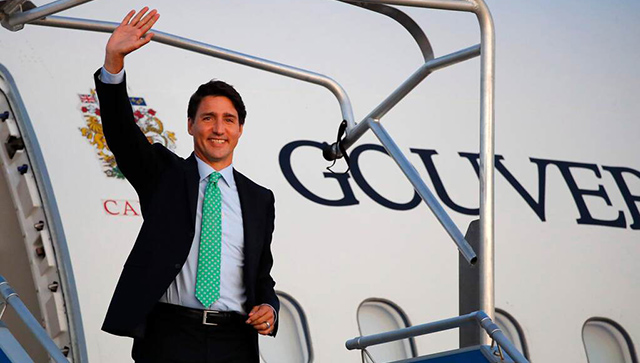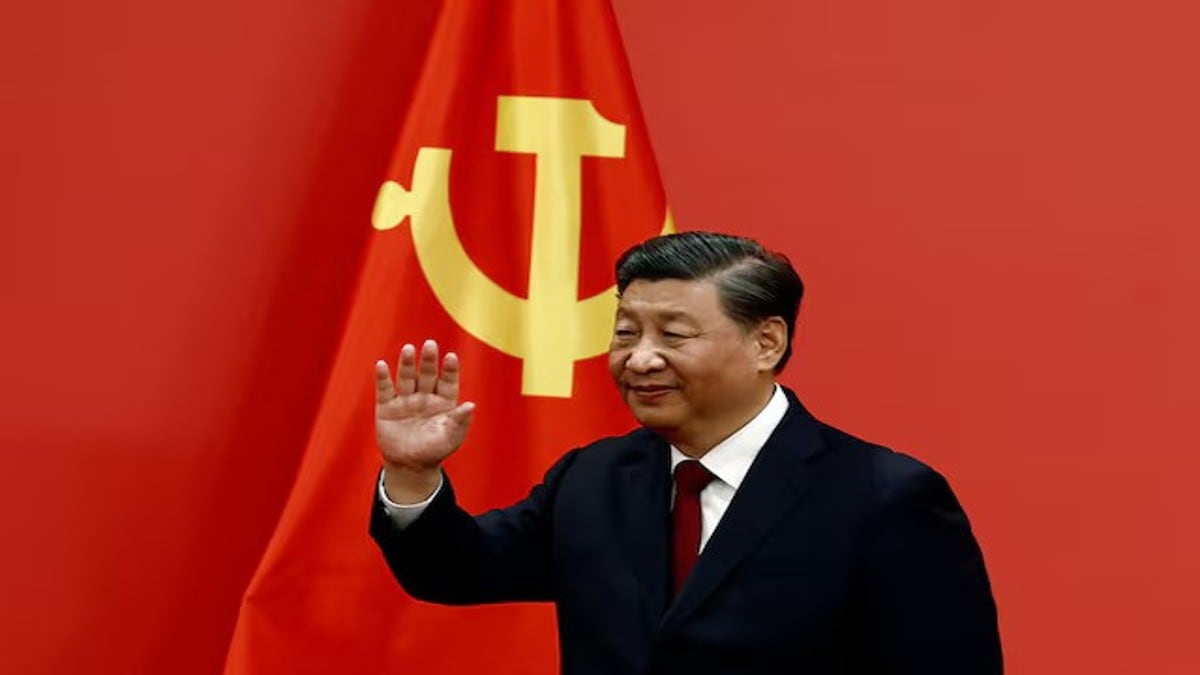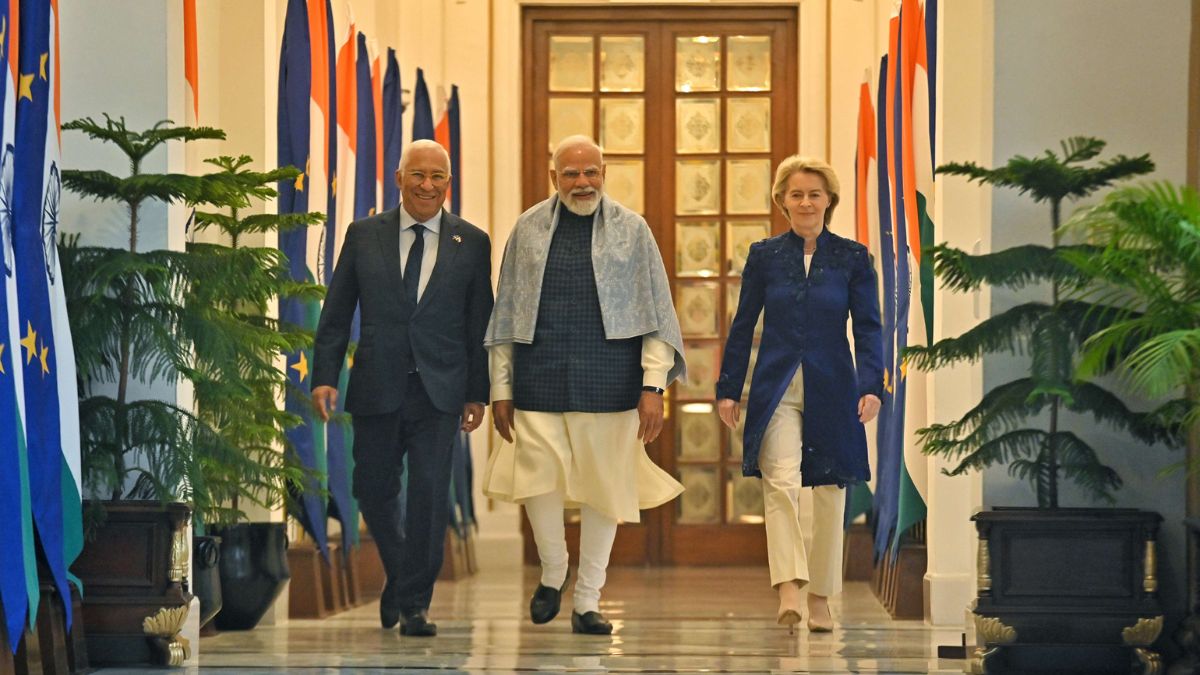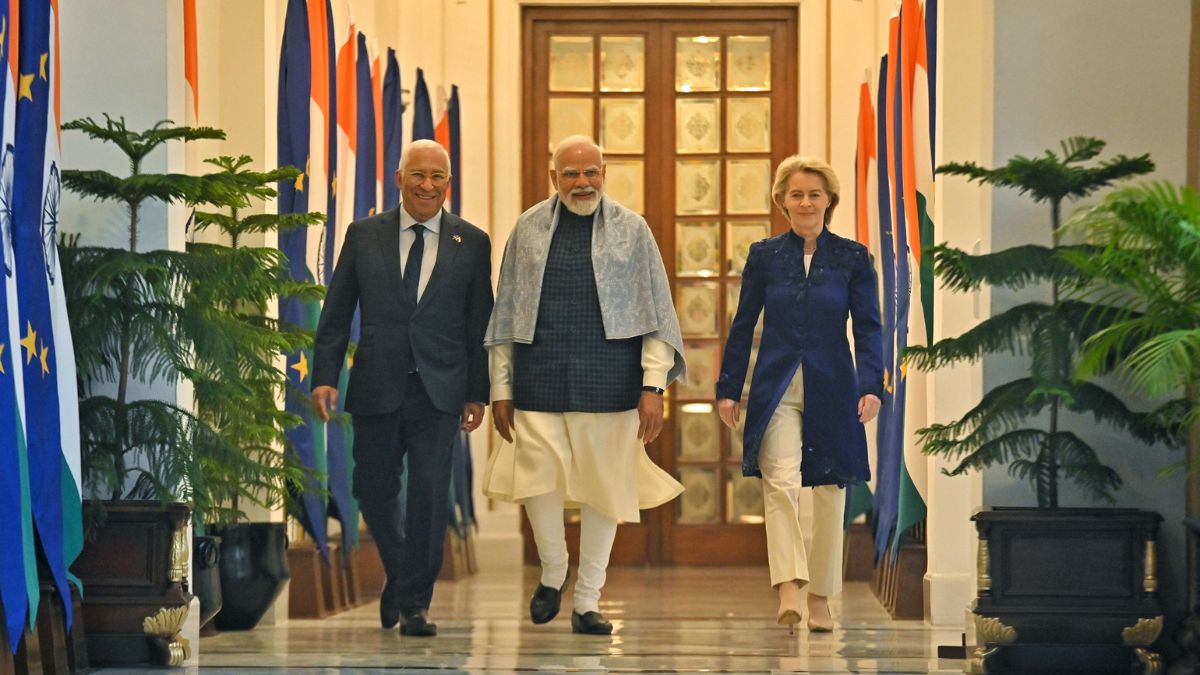On 10 November Canadian Prime Minister Justin Trudeau, once again, repeated his charge of “credible allegations” that “agents of the Indian government” were involved in the murder of “a Canadian citizen on Canadian soil”. Trudeau said this while addressing the media in Ontario, Canada. He was obviously referring to the murder of Hardeep Singh Nijjar on 18 June in the parking lot of a Gurudwara in the Canadian province of British Columbia.
Trudeau went on to say that on learning of these “credible allegations” Canada reached out to the Indian government for cooperation to get to the bottom of this matter. He also disclosed that Canada contacted its friends and allies because the “allegations” constituted a grave violation of Canadian sovereignty and international law. India has dismissed Trudeau’s charges as absurd.
Interestingly, during the course of the 10 November media interaction, Trudeau asserted that Canada did not want to “fight” India. He also again reiterated the charge that India had violated the Vienna Convention. Implicit in this accusation was the inference that India did so by informing Canada that if 41 of its diplomats did not leave India by a certain date their diplomatic privileges would be withdrawn. By restating this complaint Trudeau is either politically pandering to a section of his supporters or is not being correctly told of the contents of the Vienna Convention by his diplomatic advisors. If he is being correctly advised by his diplomats and is not acting on domestic political considerations, then Canadians should be truly worried about their prime minister’s abilities.
This writer has written earlier about the Vienna Convention in the context of the diplomatic steps taken by India in asking Canadian diplomats to leave. However, as Trudeau is repeating his allegation it would be appropriate to again dwell on this issue so that no doubt is left in the mind of sections of Indian opinion which take interest in such issues.
Quick Reads
View AllThe Vienna Convention does not curtail any sovereign state’s right to accept or deny the entry or stay of any foreign diplomat. It also does not require that a sovereign country has an obligation to inform why it wants a particular diplomat to leave though often a country when it publicly announces that it has asked that a diplomat to go it also clarifies that she/he was indulging in activities which were inconsistent with her/his diplomatic status. Such a diplomat is also declared a ‘persona non grata’ or as the acronym goes ‘png’.
It is also open to a country to ask another country to reduce the number of diplomats or non-diplomatic personnel in its missions or consulates. In doing so the country concerned can invoke the principle of parity but it is not necessary to do so. A targeted country can reciprocate by asking for a reduction in the size of the other country’s embassy or consulate. In India’s case, it asked that Canada should reduce the size of its High Commission in Delhi by withdrawing 41 diplomats on grounds of parity and also because of Canadian diplomatic interference in India’s internal affairs.
India was within its rights under the Vienna Convention to take this action. Indeed, it could have named the Canadian diplomats who should leave, which would have meant declaring them persona non grata. But it generously left the decision of who should go to the Canadians. Canada’s professional diplomats know this and it is high time that they forcefully ask Trudeau and other members of the Canadian government to stop making allegations that India violated the Vienna Convention. If they do not India should come out with a detailed statement on this issue to set the record straight and also repudiate Trudeau’s charge.
This is especially required to expose Trudeau’s hypocrisy. On the one hand, he is continuing to make allegations of Indian involvement in Nijjar’s murder and of breaking the Vienna Convention and on the other declaring that he does not want to ‘fight’ India. Indeed, he is putting pressure on Canada’s formal allies, like the United States, to press India to cooperate with Canada in the Nijjar case.
It is therefore time that India publicly informs the US and others who raise the Nijjar issue that instead of asking for Indian cooperation they should advise Canada to file a case in its courts and produce the evidence to back up its charges against India. It is noteworthy that stray information or even intelligence is often not ‘evidence’ which will stand up in a court of law. Hence, what Canada is actually asking India to do is to turn the intelligence that it is gathered into prosecutable evidence in its own courts.
In all my diplomatic career I never came across a more preposterous demand. And, Indian ministers, diplomats and intelligence officials should have no hesitation in making this clear to their Canadian counterparts or their supporters. This would not imply accepting the validity of the Canadian allegations which India has already dismissed as absurd.
It is also time for India to go on the offensive and fully expose Canadian political and underworld links with Khalistani separatism. It is unacceptable that separatism be covered under the rubric of ‘freedom of expression’. Indeed, India should ask the US Secretary of State Antony Blinken who has asked that India should cooperate with Canada in the Nijjar case to unequivocally condemn floats like the Brampton one which glorified the killers of Indira Gandhi and openly gloated over revenge. Of course, that would also require that the Indian authorities do so themselves.
It is clear that Trudeau is banking on the large Indian diaspora in Canada to pressure the Indian government to be flexible and to at least meet their adopted country halfway. Indian diplomats, despite the security issues, should find ways of reaching out to non-Khalistani supporters in the diaspora to show that Trudeau is going out of his way to damage Indo-Canada ties. The Indo-Canadian bilateral relationship is important but like all ties, it has to be carefully nurtured. Certainly, Trudeau is not acting in a manner that he wishes to return the relationship to productive and cooperative paths.
India has done well to make sure that Canadians of Indian origin would have no difficulties in getting visas to come to India. Visas have also been opened for Canadian business persons. For the time being non-Indian origin Canadians cannot travel to India for tourism purposes. Gradually, these could be given too subject to security checks.
The entire objective of India’s Canadian diplomacy should be to show the untenability of Trudeau’s adamant position. In addition, it should also expose the inherent racism in Canadian visa practices for Indian defence service personnel including those who have retired. The Canadian claim that this is part of their global practice is as duplicitous as it is laughable.
The writer is a former Indian diplomat who served as India’s Ambassador to Afghanistan and Myanmar, and as secretary, the Ministry of External Affairs. Views expressed in the above piece are personal and solely that of the author. They do not necessarily reflect Firstpost_’s views._
Read all the
Latest News,
Trending News,
Cricket News,
Bollywood News,
India News and
Entertainment News here. Follow us on
Facebook,
Twitter and
Instagram.


)

)
)
)
)
)
)
)
)



